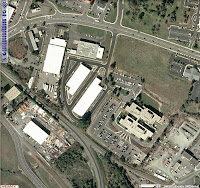Vaughn R. Walker

Federal Judge Finds N.S.A. Wiretapping Program Illegal
Labels: U.S.D.C NSA, U.S.D.J, Vaughn Walker, warrantless surveillance
ruminations on international financing and whatever
Vaughn R. Walker

Labels: U.S.D.C NSA, U.S.D.J, Vaughn Walker, warrantless surveillance
The Federal Bureau of Investigation's"Domestic Investigations and Operation Guide"

Labels: "Domestic Investigations and Operation Guide", Broad new surveillance powers, intercepts, physical searches, telephone, The Federal Bureau of Investigation, warrantless surveillance

Labels: Alberto Gonzales, Andrew H. Card Jr., Bush, President' Report, warrantless surveillance

Labels: Dept Justice e-mails, foreign intelligence surveillance warrantless wiretap, intercepts, National Security Agency, NSA, telephone, warrantless surveillance
Overcollection of American e-mail

Labels: David Blair, FISC, National Security Agency, Protect America Act, warrantless surveillance

Labels: Broad new surveillance powers, Financial Privacy, financial records, Foreign Intelligence Surveillance Court of Review, National Security Agency, Protect America Act, warrantless surveillance

Labels: Broad new surveillance powers, McCain, warrantless surveillance

Labels: Broad new surveillance powers, computer identification FBI, warrantless surveillance
 FBI will create a modern identification system for catching criminals and terrorists
FBI will create a modern identification system for catching criminals and terroristsLabels: Broad new surveillance powers, computer identification FBI, financial records, warrantless surveillance

Labels: Financial Privacy, FISA, SWIFT, Talon, tide, warrantless surveillance

Labels: European Central Bank, Financial Privacy, SWIFT, SWIFT Holderman, Talon, tide, warrantless surveillance
Broad new surveillance powers

Labels: Broad new surveillance powers, Bush, financial records, physical searches, warrantless surveillance
documents withheld

Labels: Financial Privacy, Goodling, Leahy, Spector, warrantless surveillance
Redactions

Labels: Dept Justice e-mails, email redactions, Gonzales, warrantless surveillance
E-mail Gap
Labels: Bush, Dept Justice e-mails, e-mail gap, warrantless surveillance
Document deadline missed

Labels: Chuck Rosenberg, Financial Privacy, financial records, FISA, warrantless surveillance
warrantless domestic eavesdropping program

Labels: Bush, Financial Privacy, financial records, Gonzales, warrantless surveillance
a profoundly disturbing breach of public trust

Labels: Financial Privacy, financial records, FISA, Glenn Fine, PL-107-243, warrantless surveillance
Feith the scapegoat?

Labels: Feith, Gonzales, warrantless surveillance